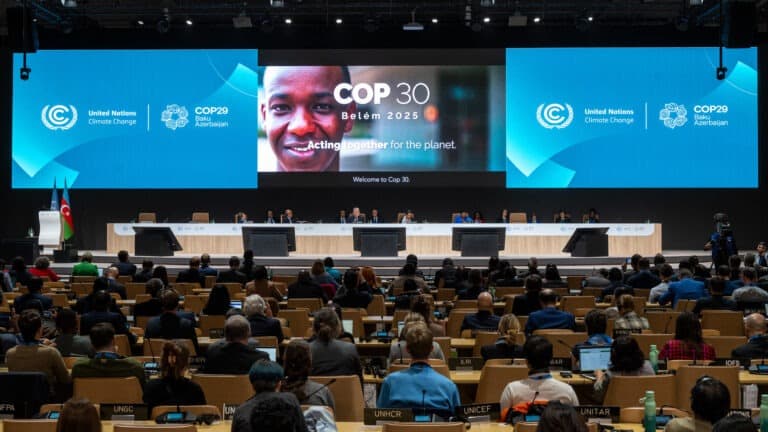COP30 Ends With Finance Boost, No Fossil Fuel Roadmap
Negotiators in Belém pushed through a tense last minute compromise that secures a substantial finance increase for vulnerable countries but omits a formal plan to phase out fossil fuels. The outcome matters because it preserves diplomatic consensus while leaving major implementation, legal, and scientific gaps that could hinder progress toward Paris Agreement goals.

Negotiators who met at COP30 in Belém, Brazil concluded the conference on November 23 with a politically fraught agreement that prioritizes finance for adaptation while deferring a clear path for fossil fuel phase out. The final text calls on wealthy countries to at least triple adaptation finance by 2035 and launches voluntary mechanisms intended to accelerate climate action, but it does not contain a formal roadmap for phasing fossil fuels. Language on fossil fuels was placed in a separate side document rather than in the main agreement, a procedural choice that many delegations said weakened the outcome.
The compromise reflected deep divisions between governments demanding stronger commitments to decarbonize and those focused on securing immediate resources for countries already facing severe climate impacts. Several delegations including Colombia, Panama and Uruguay registered objections to the final wording, citing concerns about the lack of firm fossil fuel commitments and the vagueness of the indicators for adaptation finance. Observers said the gap between the finance pledge and operational detail could undermine trust between vulnerable nations and wealthier donors.
COP30 hosts framed the outcome as a demonstration of unity and progress on a long standing demand for greater adaptation finance. For countries facing chronic floods, droughts and food insecurity, the promise of scaled up funding has immediate political and social significance. Yet activists, scientists and several national delegations warned that the accord falls short of what is needed to keep the Paris Agreement temperature goals within reach. Without explicit timelines or binding mechanisms to reduce fossil fuel production and consumption, experts said the new finance commitments may be insufficient to close the emissions gap.
Legal and institutional questions now come to the fore. By compartmentalizing fossil fuel language into a side document, negotiators limited the main agreement s normative force. That choice reduces the likelihood of creating binding international obligations in this cycle and shifts the burden of follow up to voluntary arrangements and bilateral negotiations. The ambiguity around adaptation indicators further complicates monitoring, accountability and the equitable distribution of funds to communities most at risk.
Diplomatically, the Belém compromise preserved broad participation and avoided the breakdown that could have delegitimized multilateral climate governance. It also set the stage for intensified pressure at COP31, where delegates will be expected to translate ambitious financial targets into concrete delivery plans and to confront the contentious politics of fossil fuels. For vulnerable states the measure of success will be not promises made in conference halls but timely flows of finance and technical support on the ground.
The legacy of COP30 is likely to be defined by that tension between immediate financial relief and deferred decisions on the fossil fuel era. How governments, development banks and private financiers respond in the months ahead will determine whether the compromise was a pragmatic pause for diplomacy, or a dangerous delay in the global effort to limit warming.
&w=1920&q=75)

